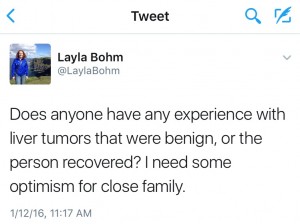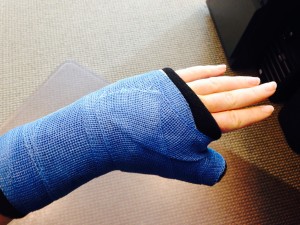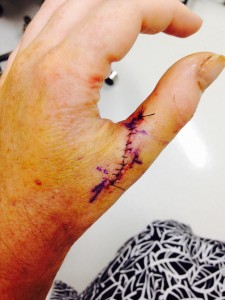February. It’s that mix of winter with a hint of spring, when the days are finally, noticeably getting longer again. Where I grew up, it was when the manzanita flowers would bloom. It’s a short month, and sometimes I’ve been lucky enough to have a presidential holiday added to the equation.

February has always been a mixed bag for me. When I was a child, I spent all of January looking forward to my February birthday. Yes, I just mentioned the b-word that my friends know I dread. I don’t like to make a big deal out of my birthday, mainly because I always feel that I haven’t done enough yet in life, so I don’t want to get another year older. To me, it feels like a day of failure, and of things not done. I’ve also had some rather interesting birthday experiences over the years that have made me a little jaded:
- My 10-year birthday party had to be postponed two weeks because whooping cough broke out in the neighborhood, and I had a 3-week-old sister who couldn’t be immunized yet. (I don’t have hard feelings toward her; whooping cough can kill infants. Whether I have hard feelings toward the people who didn’t vaccinate their kids and thus caused the breakout that threatened my sister’s life is another story for another blog post.)
- An on/off quasi-boyfriend brought a new girlfriend to one of my birthday parties.
- I was dumped on my birthday.
- A lawyer’s body was found buried in a vineyard, an event that actually launched my professional journalism career.
- I was extremely ill but desperate to get to trial, where the afore-mentioned case was reaching its peak. I convinced a doctor to give me a shot — and I promptly had a reaction. But I did get back to trial!
- I was kicked out of a law firm’s offices, so then I went and snooped through their trash in the dumpster behind the building. That was actually one of my favorite birthdays, because shady things were going on involving millions of dollars, and I was allowed to drive two-plus hours just to visit their office. (The next night, that office was “burglarized” and all of the computers and hard drives were taken — nothing else. But it was clearly an inside job, because all the glass from a broken window fell outside, not inside.)
- I moved. I hate moving. Then we celebrated with champagne with a flower in each glass, and that’s when I discovered that such flowers give me bright red hives.
- I dropped out of a 31-mile race at mile 16.5. It’s my only DNF (did not finish), and that race would have qualified me for something I’d sought for a couple years. I did finally qualify 10 months later.
- I cried in my surgeon’s office, then scheduled the second surgery in five months.
And that’s just the day of my actual birthday. February as a whole has contained some pretty gloomy things over the years. But the thing is, I could single out any time period and create a bulleted list of “disappointing things that have happened to me.” I could also create a list of “awesome things that have happened to me” (like seeing Metallica almost-on-my-birthday last year). For that matter, each day and month and year is a chance to do things better and more fully.

Ultimately, it is up to me to turn those negative events into something memorable, whether it’s a good story to tell later or a lesson to be learned. (The same guy who dumped me on my birthday also dumped me on Valentine’s Day and Christmas, so that’s a two-in-one deal.) When I look at that list up there, it doesn’t make me depressed. I see a list of non-boring things that are just a fraction of the events that happened over the course of my life. Maybe I haven’t done enough things to appease myself, but at least I’ve gotten this far.
Despite my rather strong ambivalence toward my birthday, friends and family members still insist on sending me cards, gifts and cheer every year. I do truly appreciate it, even if I don’t feel worthy. Maybe I should be a bit less critical of myself. I am grateful for the life I have, so I should try to be more grateful for each day, whether it’s my birthday or not. (For the record, today is not my birthday. It will take longer than a blog post to fully reverse that ingrained train of thought.)





















